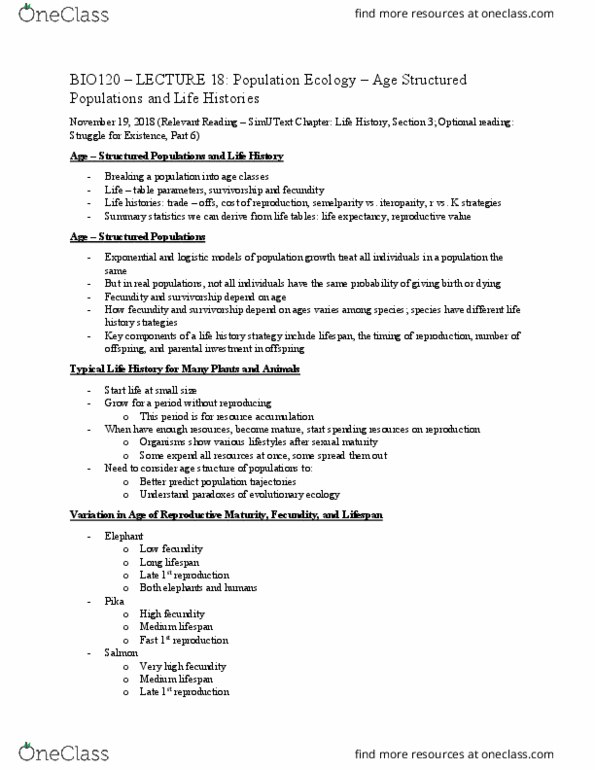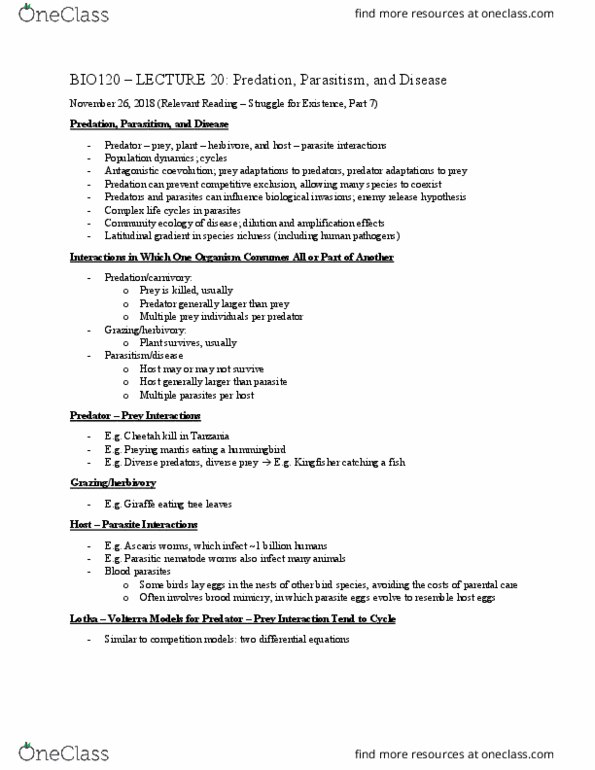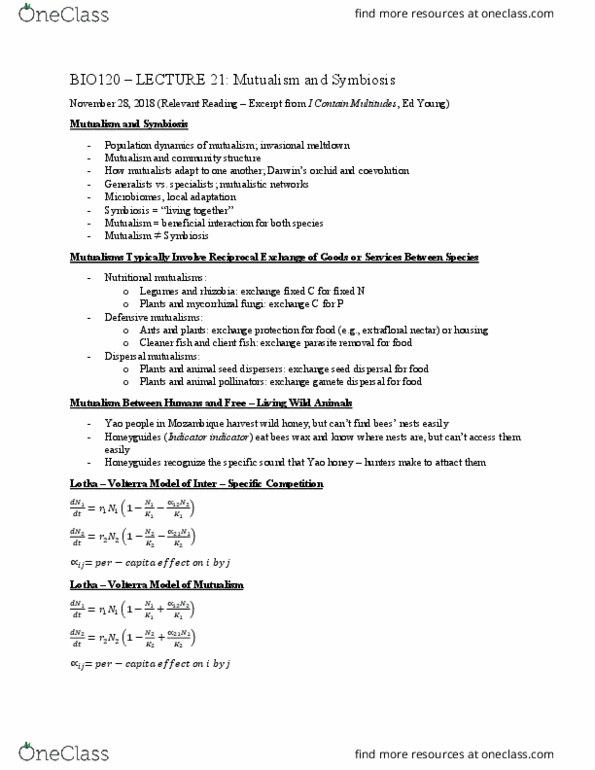BIO120H1 Lecture Notes - Lecture 23: Mantis, Invasive Species, Competitive Exclusion Principle
BIO120H1 verified notes
23/25View all
Document Summary
Bio120 lecture 20: predation, parasitism, and disease. November 26, 2018 (relevant reading struggle for existence, part 7) Predator prey, plant herbivore, and host parasite interactions. Antagonistic coevolution; prey adaptations to predators, predator adaptations to prey. Predation can prevent competitive exclusion, allowing many species to coexist. Predators and parasites can influence biological invasions; enemy release hypothesis. Community ecology of disease; dilution and amplification effects. Latitudinal gradient in species richness (including human pathogens) Interactions in which one organism consumes all or part of another. Predation/carnivory: prey is killed, usually, predator generally larger than prey, multiple prey individuals per predator. Parasitism/disease: host may or may not survive, host generally larger than parasite, multiple parasites per host. Blood parasites: some birds lay eggs in the nests of other bird species, avoiding the costs of parental care, often involves brood mimicry, in which parasite eggs evolve to resemble host eggs. Lotka volterra models for predator prey interaction tend to cycle.




